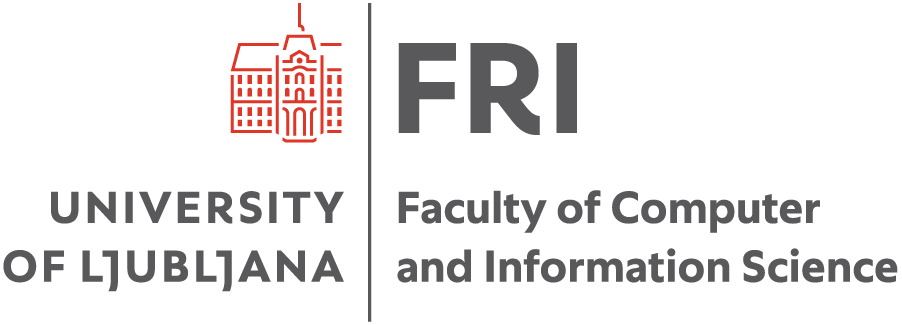- Novel approach to developing and implementing cloud applications
Polona Štefanič decided to study computer science mainly because of the better employment prospects. After graduating she joined a research group involved in cloud computer science. At the FRI 2019 day she received a special commendation and award for postgraduate research for two articles written on the basis of her research work under the mentorship of Assoc. Prof. Dr Vlado Stankovski.
SWITCH workbench articles: A novel approach for the development and deployment of time-critical microservice-based cloud-native applications and Support for full life cycle cloud-native application management: Dynamic TOSCA and SWITCH IDE were published in the journal Future Generation Computer Systems.
We talked to Polona Štefanič about her experiences with doctoral studies at FRI and researching in the cloud.
What do you like most about studying at FRI?
FRI offers a number of fields of study and a diversity of content, which in themselves steer students towards more specific computer professions or jobs. I also liked the possibility of a lot of free choice of courses, since you can choose for yourself whether, for instance, you’re more drawn to hardware, cloud computing or systems administration. Each course seemed interesting to me. After graduating I joined a research group involved in cloud computer science, and this inspired me to do research.
In 2019 you received a special commendation and award for your research. Can you explain briefly what you were researching in the articles published in Future Generation Computer Systems? What are the most interesting conclusions? How is this applicable in practice?
My research delves into the field of planning, developing and implementing time-critical cloud applications. In the articles we present a new model and architecture for application and infrastructural co-planning based on quality of service. The model provides all the mechanisms and architecture for development of time-critical applications throughout their life cycle. Furthermore it enables the programmability of infrastructure and applications, such as planning programme components, linking components and planning infrastructure.
The other article presents a novel methodology that enables the specification of application logic and dynamic adaptation of the application relative to changing conditions and circumstances in the cloud. The new concept enables the development and functioning of complex time-critical applications in the cloud environment and adaptation of computing resources and infrastructure during the operation of the application, which ensures the quality of service of time-critical applications.
The findings in both articles offer a significant contribution in the field of programme engineering and cloud computing, since based on the described concept and methodology it is possible to develop more flexible and adaptable applications in the cloud that achieve quality of service.
What are you currently involved in and what do you want to do after defending your doctorate?
I am currently writing my doctoral dissertation and finishing another article, which will be an expanded version of that was presented at the conference. After I complete my doctorate I will most probably continue in the research environment. I am drawn mainly to postdoctoral study or some teaching position.
What advice would you give to anyone deciding on further study at FRI?
First or second-cycle studies differ a lot from doctoral studies. The main difference is that first and second-cycle studies are more guided and organised, since they offer students specific selected content that the student must master, to pass the exam or develop an application as part of their seminar work or laboratory practicals, or for writing their dissertation. For the majority of courses the providers prepare the content as part of lectures and practical exercises that must be mastered.
Doctoral studies, however, demand much more creativity, innovation and vision. It is in fact research that is being conducted within the framework of doctoral studies. The purpose of research is to drive development in a certain field further, for instance to discover or develop some concept or algorithm that will enable perhaps a new method of developing cloud applications. Here it is vital to be familiar with the latest guidelines and issues of a specific research field. You have to determine yourself what this issue is and in what way you will set about dealing with the issue in a specific field, so such research will be more innovative than the latest research in that field. Furthermore no one can guarantee that your research approach will be correct and that your research activity will even make sense. Here of course the knowledge you have from the first and second cycles comes into its own as a tool for achieving your objective.
